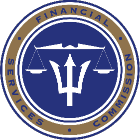
Overview
The Credit Union sector comprises member-owned financial cooperatives. These bodies accept deposits from members and provide loans, mortgages, investments and other services. The larger credit unions operating in Barbados have evolved to offer a range of other facilities, including debit and credit cards and online banking services. The credit union body provides services to a large cross-section of the population in Barbados, and its significance has grown such that entities within the sector have been as systemically important financial institutions (SIFIs) or “near-SIFI” by the Financial Services Commission in recognition of the material impact that they can have on Barbados’ financial system.
The Commission regulates and supervises credit unions as part of its mandate to protect the safety and soundness of the financial system. Credit Unions are governed by the Financial Services Commission Act, 2010-21 and the Co-operatives Societies Act, Cap. 378A and are subject to a robust framework which monitors the financial health of these entities and the effectiveness of their risk management programme.
Regulatory & Supervisory Functions
The Commission’s role encompasses:
- Assessing new applicants who wish to start a credit union. Like other financial institutions, credit unions must meet specified criteria to be registered, including meeting fit and proper standards.
- Reviewing and approving applications such as but not limited to the permission to invest, request for an extension of time to convene Annual General Meeting, approval of maximum liquidity, auditor approval and new and revised by-laws of credit unions.
- Approving specific changes within the credit union e.g. amalgamations, transfers of assets and liabilities and winding-up of credit unions
- Onsite examination of the risk management practices of credit unions and ensuring that remedial actions are taken to address areas of deficiency
- Assessing financial returns, including evaluating liquidity, credit risk, non-performing loans, and capital of credit unions and intervening where required to address heightened risk
- Developing tools and models to assess entities within a risk-based supervision framework
- Monitoring compliance with the legislative and regulatory requirements, including ensuring that credit unions fulfil obligations to members regarding, among things, holding of AGMs, seeking member approval for certain decisions, and provision of timely information to members
- Initiating enforcement action where deficiencies or elevated risks are not adequately addressed
- Developing and ensuring the implementation of appropriate standards for managing risk by credit unions
- Developing and issuing guidelines to assist credit unions in addressing key risk areas
Stakeholder Engagement
The Commission regularly engages its key stakeholders in the sector, including credit unions and the sector's representative body, the Barbados Co-operative & Credit Union League Limited. Data and information about the sector are published periodically via the Commission’s website and provided at presentations to the industry and other stakeholders. The FSC liaises and works with domestic, regional and international credit union regulators. The Financial Services Commission is a member of the International Credit Union Regulators’ Network (ICURN), an international grouping of regulators, and is also a member of the Caribbean Association of Credit Union Supervisors, the regional grouping of regulators.




